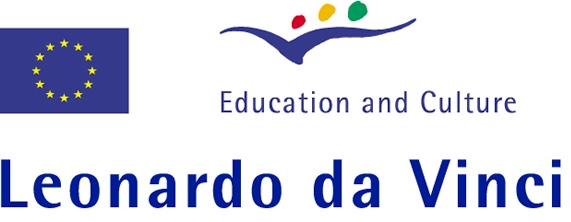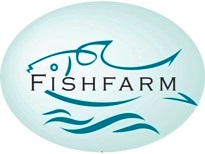Qualification of Vocational Education and Skill Training for Aquaculture in Europe (FISHFARM)
Leonardo da Vinci
2012-1-TR1-LEO05-35110

Summary of the Project
Increased demand for fish protein has been met by increased cultivation of many species of freshwater and marine fish. The cultured fish production in Europe is 436.000 tons and average yearly fish consumption is 22 kg per person. Turkey produces 80.000 tons cultured fish but yearly fish consumption is only 8 kg per person.
In spite of state of the art technology to fulfill the production needs, it is necessary to optimize different production factors in fish culture operations to minimize the possible ecological impacts, water quality, microbiological, toxicological (dioxin) and disease problems of farmed fish. Without knowing and controlling them, it will be hard to program viable aquaculture industries.
The fish feeding systems can lead to undesired complications due to inadequate training and skills of workers as well as lack of proper translation of manuals. A major bottleneck for reliable fish production is the high mortality rate during larval stage. Factors that affect larval survival and quality are not yet well-defined. In order to be competitive, fish farmers, technicans and trainers in vocational and continuing education institutions often need contemporary scientific curriculum on brood stock management, larval culture, disease management, biosecurity, and cage aquaculture. Surveys and literatures on fish farming show that an integrated effort is crucial to blend in the discrete pieces of information and experience that have accumulated over the years for potential solutions in fish farming.
FISHFARM is a transfer of innovation project that aims to create sustainable scientific curriculum for fish culture and cage rearing operations that will help to bring in ideas, approaches and methods towards solving persistent problems in aquaculture. Such a cooperation will assist hatcheries and cage farms across Europe in having a more reproductive outcome and in leading to a better knowledge of sustainable aquaculture.
The main objective of the project is to create completely updated teaching materials on fish farming, EU legislations on fish farming, relevant importance as indicators of aquaculture sustainability. The targets of teaching materials are fish farmers, their associations, feed/feed additive sector, environmental associations, faculties of fisheries, agriculture, and also policy makers and institutions in Europe. The consortium consists universities, research center, foundation, cooperative and a private institution.
The main outcomes are related to the implementation of the teaching materials by former Ostrich (main) and Sheepskills projects with a specific focus on importance of sustainable good practices in the aquaculture sector in Europe. The impact envisaged of teaching materials from former projects are on fish farmers, related services, beneficients of the project, teachers and trainers of public or private continuing education centers on fish farming, labor employment agencies and VET systems.
Duration of the project: 24 months (1st November, 2012 – 31st October, 2014)
